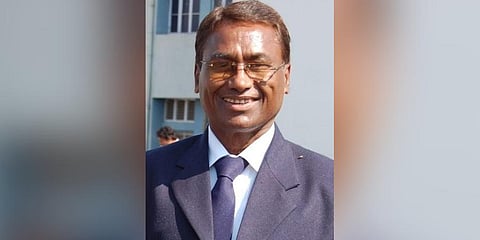

CHENNAI: As soon as the final whistle went off at Stadium Merdeka in Kuala Lumpur (Malaysia) on March 15, 1975, Ashok Kumar, son of legendary Dhyan Chand, threw his 17-ounce hockey stick towards a jubilant crowd. Little did he know then that the stick would have fetched millions today. After all, the stick, the lightest being used those days, gave India its only World Cup title beating arch-rivals Pakistan 2-1 in the final which easily can be termed as one of the classic matches of the marquee event. The craze for sports memorabilia has grown multifold and any such collection would have been priceless now.
Ashok, 72, however, has no regrets. In fact, he is happy that the stick was recently tracked and a picture was carried in a book on Indian hockey. "Someone in Malaysia has it. I saw the picture of that stick in a hockey book of late," Ashok, who has won all three World Cup medals (bronze-1971, silver-1973, gold-1975) apart from the 1972 Munich Olympics bronze and three Asian Games silver, told this daily from New Delhi. "It was the moment when nothing mattered as we had won the World Cup. We were so close in 1973 but lost the final on penalty strokes to the Netherlands after a 2-2 draw. So no regrets I must say," said a nostalgic Ashok.
Ashok, felt that this would be a great opportunity for India to medal at the World Cup, especially after their historic bronze medal campaign at the Olympics. "The way they have been playing for the past couple of years, our boys can finish on the podium. They have all the facilities and they should do it for the country," signed off the legend.
Rs 15 DA and shifting of camp
As was the practice, the Indian team was camping at NIS Patiala before the tournament. Each player used to get Rs 15 as a daily allowance. The then Punjab Chief Minister Giani Zail Singh, who later served as the President of the country, came to know about it. He then asked the Indian team to shift to Chandigarh University and ensured they had the best facilities in during the build-up to the event. "The way Odisha government is doing today, he (Zail Singh) did it then. We were accommodated in the boys' hostel. The ground was very good and the Punjab government ensured we got the best food. The one-and-a-half-month camp made sure that we prepared in the best way for the tournament," added Ashok.
Important match against West Germany
India had to win their last pool B against Germany if they wished to progress to the semifinals. Ashok, who used to play inside right, knew he will be marked and chalked out a strategy to counter the move with fellow teammates Surjit Singh, Varinder Singh and Victor Philips. "I asked Surjit, who was playing as a left fullback, to pass the ball diagonally to me whenever a chance was there. I then asked Varinder and Philips to rush to my position as I was supposed to take their place. This ensured the defender moved with me and the strategy paid dividends as we won 3-1."
Aslam's crucial goal
In the semifinal against the hosts, who were backed by their vociferous supporters, India conceded in the first half. They equalised in the second but conceded once again in a couple of minutes to trail 1-2. "Substitution was not common those days and only four minutes were left in the contest when Aslam (Sher Khan) substituted Michael Kindo. We got a penalty corner. BP Govinda was the pusher while our captain Ajit Pal Singh stopped the ball after which Aslam hit it in the post levelling the score. That goal was important as we finally won the contest in extra time to enter the title clash."
Visit to places of worship
Ahead of the final, Indian team members visited places of worship in Kuala Lumpur — temple, mosque, church and gurudwara. They also met the Pakistan team on their way to the mosque. "That was the practice then as we also used to chant slogans of every religion in our team bus ahead of the match."
The goal that mattered
As was the semifinal, India conceded a goal in the first half only to equalise in the next. In the 51st minute, they got a long corner, which eventually led to Ashok scoring the all-important goal. "Harcharan Singh took the long corner while Ajit stopped it and passed it to me. I dodged a Pakistani player in the 'D' and then passed it to Surjit, who after a couple of steps passed it back to me. The moment I received it, I flicked it to the left of the Pakistani goalkeeper. Such was the speed that the ball hit the board on the left and came out. For a few seconds, it was complete silence and then everybody started rushing towards me. Even the referee took some time before signalling the goal," reminisced Ashok. Pakistan players protested but to no avail. India, especially goalkeeper Ashok Diwan and Aslam, defended well to ensure India returned home with the glittering trophy.